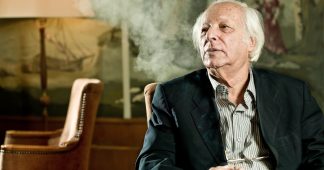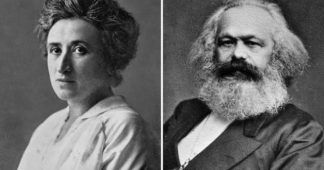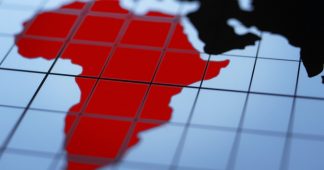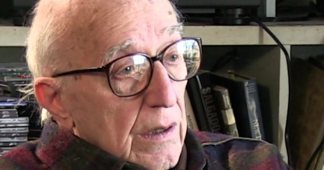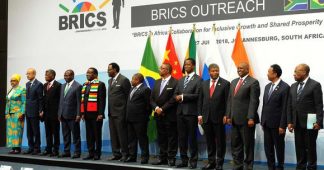Ndongo Samba Sylla interviewed by Scott Ferguson, Max Seijo & William Saas
May 26, 2019
Below is a transcription of the March 14th episode of the podcast Money on the Left.
Saas: You are listening to Money on the Left, the official podcast of the Modern Money Network: Humanities Division, or MMN-HD. Ndongo Samba Sylla is a Senegalese development economist, and research and program manager of the West Africa office of the Rosa Luxemburg Foundation. Sylla is also the author of many articles and three books, including the recently published L’arme invisible de la Françafrique, or ‘The Invisible Weapon of Franco-African Imperialism’. In that book, Sylla and co-author Fanny Pigeaud lay out a comprehensive case against the CFA Franc, which is the neo-colonial currency union that presently constrains the social, political, and economic prospects of each of its member states. In this episode, Scott and Max talk with Sylla about the history of political economy in pre- and post-colonial Africa, the theoretical bases and political stakes of the anti-CFA Franc movement, and how Modern Monetary Theory (MMT) ought to inform current and future efforts to restore political and economic sovereignty to West African nations. Special thanks to Ndongo for taking the time to speak with us, and to Alex Williams for producing this episode.
Seijo: Ndongo Samba Sylla, welcome to Money on the Left.
Sylla: Thank you, thank you for your invitation.
Seijo: So I was wondering … if you could tell us a bit about your personal, educational, and political background.
Sylla: Yeah, I am a Senegalese citizen. I currently live in Dakar, where I grew up (Dakar is the capital of Senegal). I did my early studies in Senegal, until the Baccalaureate, in 1996. From there, I went to Paris for my university studies, and I obtained a master’s degree in sociology at the Institute of Political Studies in Paris, and also a master’s degree in development economics at the University of Paris I Panthéon-Sorbonne. And then I did a Ph.D. in economics at the University of Versailles Saint-Quentin-en-Yvelines, and my dissertation was about employment relationships in Senegal.
Professionally, I started my first job as a researcher in 2001, in a public research center in Paris specialized in employment issues. I worked there under the supervision of one of my professors, and I had to participate in the writing of evaluation reports about The European Employment Strategy, which was an initiative launched in 1997 by the European Union.
From there, I worked for the government. I was, between 2006 and 2009, technical advisor at the Presidency of the Republic of Senegal, and I left this job in 2009. After that, I worked as a consultant for the Fair Trade worldwide umbrella organization. Since then, in 2012, I worked in Dakar as a program research manager at the West Africa office of the Rosa Luxemburg Foundation, which is a leftist German political foundation. And regarding my writings, I have authored a book on Fair Trade, named ‘The Fair Trade Scandal’. I have also authored one book on the story of democracy, and recently I co-authored a book with a French journalist, Fanny Pigeaud, on the story of the CFA Franc.
Ferguson: So your recent work, and your recent co-authored book, focuses primarily, as you said, on the present history of the neo-colonial monetary system that is the CFA Franc, in Francophone Africa. And really, in this conversation, I want us to dive into that. But before we start, I was wondering if you could sketch out for us how you approach this question through political economy, and how do you understand money. I’m also curious, given your background and training, thinking about employment and unemployment, how you see the relationship between money and employment.
Sylla: It’s difficult to give a definition of money of my own. I do not have a definition of my own. But I somewhat subscribe to some existing views about money. Namely, the view that money is an important social institution, which helps, lets say, settle debts and credit relationships in given polities. And this function is more or less possible because if money has to work, first you need a unit of account allowing to count the debts and the credits, and also you have to establish rules for exchange, payment, and accumulation of social values. But the view of money which doesn’t convince me is the neoclassical view of money as commodity, which helps overcome the shortcomings of barter. I am really not convinced by this view, and the neoclassical view, too, that money is a neutral economic instrument.
Generally, I often like to quote Aristotle in his book, Nichomachean Ethics (in French it’s Ethique à Nicomaque), where he says the word that designates law in Greek [nomos], shares the same etymology, the same root, with the word referring to money/currency [nomisma]. So that means that you could not find a more political topic than money. Sometimes people told us that money is a complicated subject, only for experts, but with the observation made by Aristotle, we could be sure that money is, let’s say, a political topic, which needs a really democratic framework for debate. So I think, as progressives, it’s important to open the money ‘black box’, and make it understandable for ordinary people. And that’s why I also appreciate very much the efforts made by the Modern Monetary Theory movement.
Regarding now the link between money and employment, I think there is a clear link between them, because in the capitalist economies, money is at the beginning of production. It’s at the beginning, and it’s at the end. And you have to create money to start production. And by the act of creating money, you create production, and at the same time you create jobs. So in capitalist economies, you need money to create jobs. You have to provide money. And when you say ‘money’, it’s not just existing savings, or means of payment, but newer means of payment – monetary creation. That’s why there is a strong link between money and employment.
Read more at https://mronline.org/2019/05/26/
